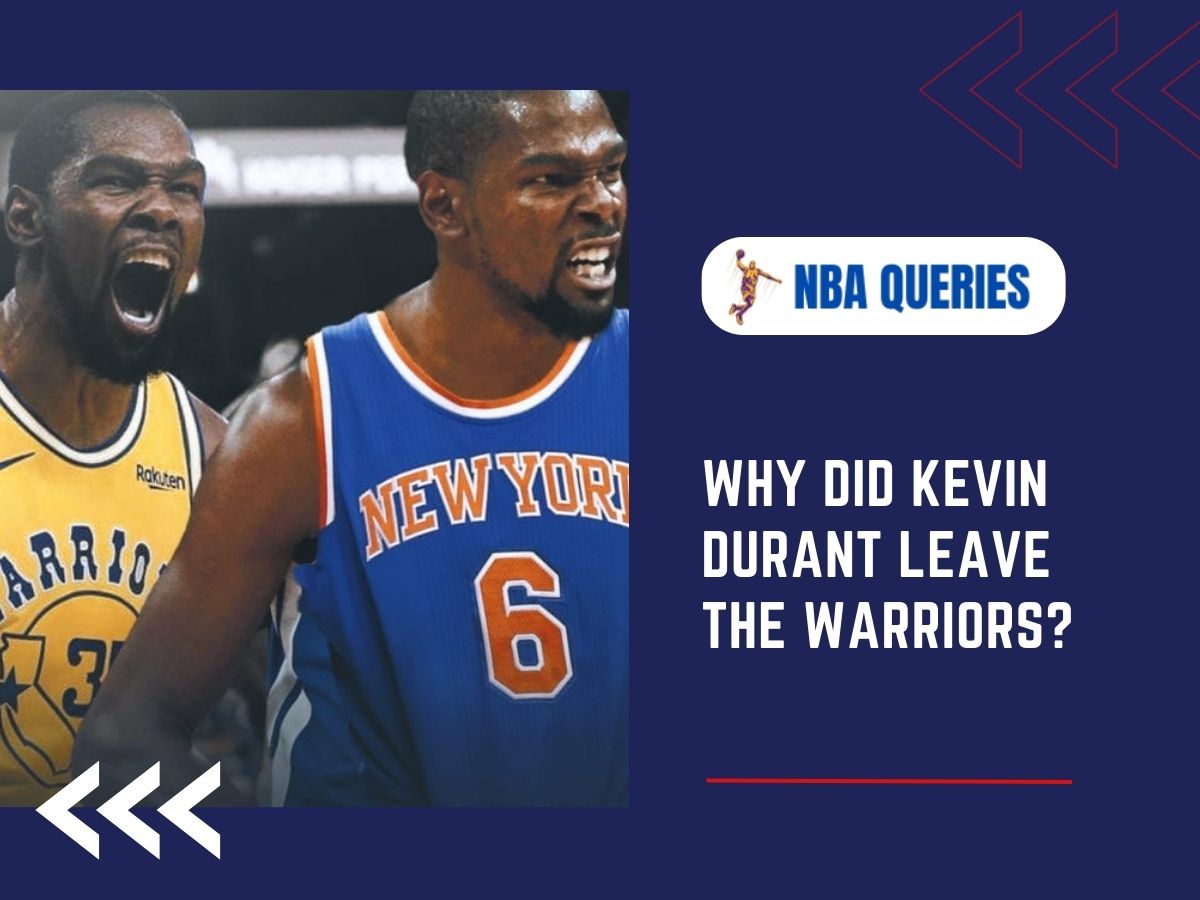In the high-octane world of the NBA, few moves have been as scrutinized as Kevin Durant’s departure from the Golden State Warriors to join the Brooklyn Nets. This strategic pivot raised eyebrows and ignited discussions across the basketball community. To understand why Kevin Durant left the Warriors, it’s essential to consider several key factors that influenced his decision, painting a picture of a superstar in search of new challenges and a distinct identity in the league.
The Quest for a Fresh Start
At the heart of Durant’s decision was a desire for change and a new challenge. Durant himself stated the move was driven by a personal decision to embrace a new team and environment, indicating a clear desire to step out of the familiar confines of the Warriors’ ecosystem. This sentiment echoed Durant’s pursuit of growth, both personally and professionally, as he sought to carve out a new chapter in his storied career.
Seeking Individual Recognition
Despite his monumental success with the Warriors, including two NBA Championships and Finals MVP awards, Durant felt overshadowed and struggled with the constant comparisons to his teammates and the team’s prior achievements. The Warriors’ ensemble of homegrown talents like Steph Curry, Klay Thompson, and Draymond Green, each with their deep-rooted legacy within the team, underscored Durant’s feelings of being an outsider. His reflections on never being “one of those guys” despite his contributions highlight a yearning for a space where his achievements could stand on their own, away from the shadow of the Warriors’ dynasty.
The Fallout with Draymond Green
A pivotal moment that underscored Durant’s eventual departure was his well-documented fallout with teammate Draymond Green. The altercation and its aftermath, particularly the team’s handling of the incident, left a significant mark on Durant. The situation highlighted a broader issue within the team dynamics and perhaps underscored a lack of the familial atmosphere Durant craved. This incident not only strained Durant’s relationship with Green but also affected his perception of the team’s cohesion and management’s response to internal conflicts.
The Lure of Brooklyn
Joining the Brooklyn Nets was not a spur-of-the-moment decision for Durant. The allure of Brooklyn, coupled with the prospect of playing alongside close friends Kyrie Irving and DeAndre Jordan, presented an enticing new beginning. The decision was made in the early hours of free agency, signaling a well-thought-out move to a team where Durant could establish a fresh legacy on his terms.
The Impact of Public Perception and Media
Durant’s relationship with the media and the public perception played a non-negligible role in his decision. Despite achieving the pinnacle of success, Durant felt his contributions were never fully embraced, partly due to the narrative of joining an already dominant Warriors team. The lack of a “full acceptance” by the media and some segments of the fanbase contributed to his feeling of alienation, pushing him towards seeking a franchise where his arrival would not be clouded by previous narratives.
The Warriors’ Reconfiguration
The departure of a player of Durant’s caliber necessitated a strategic pivot for the Golden State Warriors. The team that had enjoyed unparalleled success found itself at a crossroads, facing the challenge of filling the void left by one of the game’s best. This period saw the Warriors grappling with injuries and adjusting to a new dynamic, which, while challenging, also provided a canvas for reinvention and resilience. The Warriors’ journey post-Durant underscores the cyclical nature of sports franchises and the continuous quest for balance between maintaining a competitive edge and adapting to change.
The Nets’ Ascent
For the Brooklyn Nets, securing Durant represented a monumental coup, signaling the franchise’s ambitions and elevating its status in the league’s hierarchy. The arrival of Durant, along with Kyrie Irving and DeAndre Jordan, heralded a new era for the Nets, characterized by star power and heightened expectations. This move underscored the Nets’ strategic vision and the allure of Brooklyn as a destination for marquee players. However, the path to success is fraught with challenges, including injuries and chemistry, illustrating the complexities of assembling a championship-caliber team.
The Discussion on Player Empowerment
Durant’s decision to leave the Warriors and the manner in which he orchestrated his move to the Nets contribute to the broader discourse on player empowerment. In an era where player agency is at an all-time high, Durant’s move exemplifies how players wield significant influence over their careers and the composition of teams. This shift towards player-driven decisions has reshaped the NBA, sparking debates on loyalty, team construction, and the balance of power between players and organizations.
The Legacy of Durant’s Decision
The implications of Durant’s departure from the Warriors extend beyond immediate on-court outcomes. It serves as a case study in the complexities of legacy, belonging, and the pursuit of fulfillment in professional sports. For Durant, the move was a step towards defining his narrative on his terms, seeking a new environment where his contributions would be both central and celebrated. For the Warriors and the Nets, it was a moment of transition, a testament to the ever-evolving landscape of the NBA.
Looking Forward
As the dust settles on Kevin Durant’s departure from the Golden State Warriors, the focus shifts to the future. For Durant and the Nets, the journey is about realizing the potential of their assembled talent and striving for the ultimate prize. For the Warriors, it’s about reinvention and the relentless pursuit of excellence. And for the NBA, it’s a reflection of an era where player mobility and empowerment are defining themes, shaping the league’s narrative for years to come.

